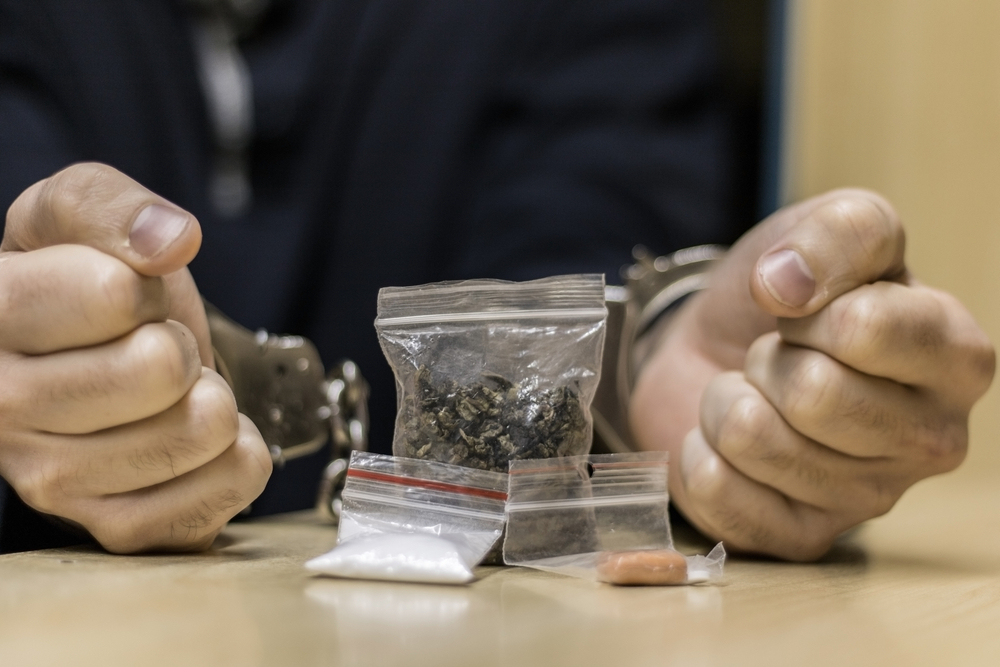Drug Possession vs. Intent to Distribute: Differentiating Charges in Pennsylvania
 When it comes to drug-related offenses, the distinction between ‘drug possession’ and ‘intent to distribute’ is not just a matter of semantics but can significantly impact the course and consequence of a legal case.
When it comes to drug-related offenses, the distinction between ‘drug possession’ and ‘intent to distribute’ is not just a matter of semantics but can significantly impact the course and consequence of a legal case.
Drug Possession in Pennsylvania
Drug possession in Pennsylvania’s legal framework refers to the act of having control over illegal drugs. This charge can vary in severity, but it is distinct from the more serious offense of intent to distribute due to its focus on personal possession rather than distribution. Key factors play a role in determining the nature of a drug possession charge:
- Type of Drug: The legal consequences can vary significantly depending on whether the substance is classified as a Schedule I drug (like heroin or LSD) versus a Schedule IV drug (certain prescription medications).
- Quantity of Drugs: The amount in possession can influence the severity of the charge. Smaller quantities typically suggest personal use, whereas larger amounts might lead to suspicion of distribution.
- Presence of Drug Paraphernalia: Items associated with drug use, such as pipes or syringes, can support a possession charge.
- Behavior and Circumstances of Arrest: The context of the arrest, such as being caught using the drug or having it in an accessible location, can also be a factor.
Several factors can enhance the severity of a possession charge:
- Repeat Offenses: Repeat offenders may face harsher penalties.
- Location of the Arrest: Possession in certain areas, like near schools, can lead to increased penalties.
- Concurrent Criminal Activity: Additional charges, such as DUI or possession of a weapon, can compound the seriousness of the offense.
Defending against drug possession charges requires a careful approach:
- Questioning the Legality of Search and Seizure: Examining if the evidence was obtained through a lawful search.
- Disputing Ownership or Knowledge: Arguing that the individual was unaware of the drug’s presence or that it belonged to someone else.
- Negotiating Plea Bargains: Working towards a plea deal for reduced charges or alternative sentencing like drug treatment programs.
Intent to Distribute: A More Serious Offense
 Intent to distribute is a significant charge in Pennsylvania’s criminal justice system, typically applied when evidence suggests that an individual is not just possessing, but also planning to sell or distribute illegal drugs.
Intent to distribute is a significant charge in Pennsylvania’s criminal justice system, typically applied when evidence suggests that an individual is not just possessing, but also planning to sell or distribute illegal drugs.
This charge is more serious than simple possession due to its implications of potential drug trafficking. Several factors can indicate intent to distribute, and these are crucial in determining the nature of the charge:
- Quantity of Drugs: Large quantities of drugs, exceeding what might be considered for personal use, often suggest distribution intent.
- Packaging: Drugs found in small, individual packages or baggies can be indicative of intent to sell.
- Distribution Paraphernalia: Scales, baggies, large amounts of cash, or lists of customers found alongside the drugs can point towards distribution.
- Communication Evidence: Text messages, emails, or phone records that suggest sale or distribution activities.
- Location of the Arrest: Being caught in an area known for drug trafficking can add to the suspicion of intent to distribute.
Several aggravating factors can increase the severity of penalties:
- Type of Drug: Certain drugs, like heroin or methamphetamine, are treated more harshly than others.
- Proximity to Schools: Charges can be elevated if the offense occurs near a school or other protected area.
- Prior Convictions: Individuals with prior drug convictions often face harsher penalties.
Defending against intent to distribute charges requires a nuanced legal strategy:
- Challenging the Evidence: Examining the legality of the search and seizure, and the reliability of the evidence collected.
- Intent vs. Possession: Arguing that the possession was for personal use, not distribution.
- Negotiating Plea Deals: In some cases, negotiating a plea for a lesser charge can be advantageous.
- Utilizing Expert Testimony: Sometimes, expert witnesses can testify about the nature of the drug possession and usage patterns.
Your Partner in Defense
Differentiating between drug possession and intent to distribute is key to understanding the potential outcomes of drug-related charges in Pennsylvania. While both charges carry serious implications, the intent to distribute is notably more severe with potentially life-altering consequences.
As a law firm deeply rooted in Pennsylvania’s legal system, Engle Kauffman and VanHorn are committed to providing robust legal representation and guidance. Whether you’re dealing with misdemeanor charges in PA or facing more serious allegations, our team of criminal defense attorneys is equipped to offer the defense you deserve.
In cases of drug possession or intent to distribute, having knowledgeable representation is paramount. We meticulously analyze every facet of your case, challenge weaknesses in the prosecution’s arguments, and strive for outcomes that align with your best interests. If you or a loved one are facing drug-related charges in Pennsylvania, don’t navigate this complex legal landscape alone. Contact Engle Kauffman and VanHorn today.



